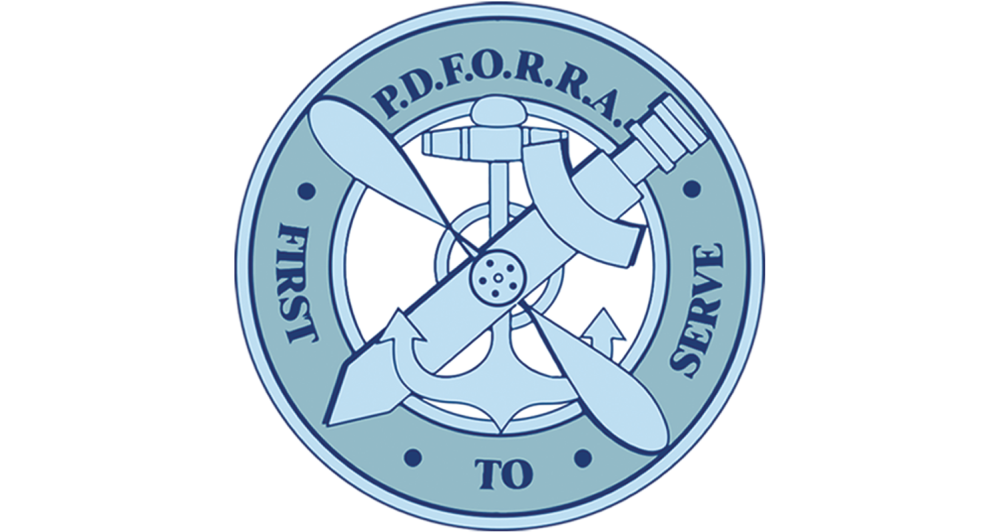PDFORRA in the Workplace
PDFORRA members are spread throughout the Defence Forces and operate under various local and service conditions. The Association is organised in such a way that specific concerns of particular groups of members can be represented effectively while at the same time providing an overall framework that allows the Association to act collectively to bring its full influence to bear on vital issues.
Districts
The Association is divided into 43 Districts ( a district can be a barracks, post or ship) throughout the country. Members in some of the smaller barracks such as Tralee belong to the District of the nearest large barracks, in this case, Limerick.
The membership of each District elect a District Committee - the size of this committee varies in size between 5 and 12 members. Each District Committee is elected by secret ballot of district members every three years. This District Committee holds regular meetings with the Barrack Commander to discuss matters of concern that fall within the 'Scope of Representation' for this level. Every attempt is made to have these issues resolved by agreement. The District Committee Representative is your initial access to the representative process. If you have a complaint or concern with your employment or indeed with the association the District Representative will attempt through the District Committee to have the matter resolved to your satisfaction.
The District Representative also disseminates information to members on behalf of the Association. When issues cannot be resolved locally or fall outside the 'scope of representation' for this level the District Committee submits a referral to the Regional Committee.
Region
PDFORRA is organised into six regions based on the geographical areas of the three Defence Force Brigades, the Defence Forces Training Center (DFTC), the Air Corps and the Naval Service. The six Regions are named the Eastern, Western, Southern, Kildare (DFTC), Aero and Naval Regions. Each Regional Committee is made up of two representatives from each District Committee within the Region.
The Regional Committee meets at least four times annually to discuss and co-ordinate regional issues. The regional committee will also conduct meetings with their General Officer Commanding or Flag Officer to discuss and seek a resolution to matters which fall within the 'Scope of Representation' for this level and items which have not been resolved through discussions at District level. Items which do not reach a resolution or fall outside the 'scope' for this level are passed to the National Executive where the matter will be brought to the National forum for resolution.
The National Executive
The National Executive is responsible for the running of the Association as a whole, for implementing policy adopted at the Associations Annual Delegate Conference and for the achievement of the Association's Objectives which are laid down in the Association's Constitution.
The Executive is made up of sixteen members. The four non-voting members include the President and the Vice President (elected by Annual Delegate Conference) and the General Secretary and the Deputy General Secretary (elected by popular vote of the members).
The twelve voting members of the National Executive are comprised of two representatives from each region who serve for a three-year term in line with District Elections. The National Treasurer, Welfare Officer and Health & Safety are elected from the voting members of the National Executive.
The National Executive has a much wider scope of representation than the other two levels of the Association. The National Executive often find themselves dealing with agencies other than the military authorities and the Department of Defence in an attempt to resolve issues such as the Health and Safety Authorities, the Department of Finance and indeed the European Commission. However, it is more usual to pursue resolution of representative matters through negotiation with Defence Force Headquarters or the Conciliation Council of the Defence Forces Conciliation and Arbitration (C&A) Scheme.
Administrative Council
The Administrative Council and the National Office
The Administrative Council is made up of the seven office holders of the National Executive and is responsible for the day-to-day administration of the Association. The negotiating team of the National Executive is also usually drawn from this body. As all of the National Officers are members of the Defence Forces the National Office staff carries out the normal administration of the Association. The General Secretary and the Deputy General Secretary are association members and are seconded to the Association and employed at the National Office as full-time officers for the period of their term of office. The National Office also has a civilian staff.
The National Office is where claims and referrals are researched and prepared for presentation to the National Executive and where the Associations administration, maintenance of the membership database and the information service is based. The National Office is located at Collins Square, Benburb Street, Dublin 7. Telephone: 01 - 671 2430; Fax: 01-671 2484; e-mail: hq@pdforra.ie .
Freephone Service: Should you have any queries or problems regarding representation there is a Freephone service at the National Office.
The Freephone Numbers are: Republic of Ireland: 1800 200 250 Northern Ireland: 0800 358 1428
PDFORRA Staff

Mark Keane
Position: President

Donogh Maguire
Position: Vice-President

Gerard Guinan
Position: General Secretary

Martin Bright
Position: Deputy General Secretary

Ken Holland
Position: Treasurer

David O Connell
Position: Assistant Treasurer

Damien Quigley
Position: National Support Officer
Amy Dermody
Position: Assistant Support Officer

Ray Mc Kenna
Position: Health & Safety Officer

Davy Nonan
Position: Regional Liasion Officer

Marie Phelan
Position: TBC
Ciaron Gaynor
Position: Regional Liaison Officer

Paddy Doheny
Position: Industrial Relations Officer

